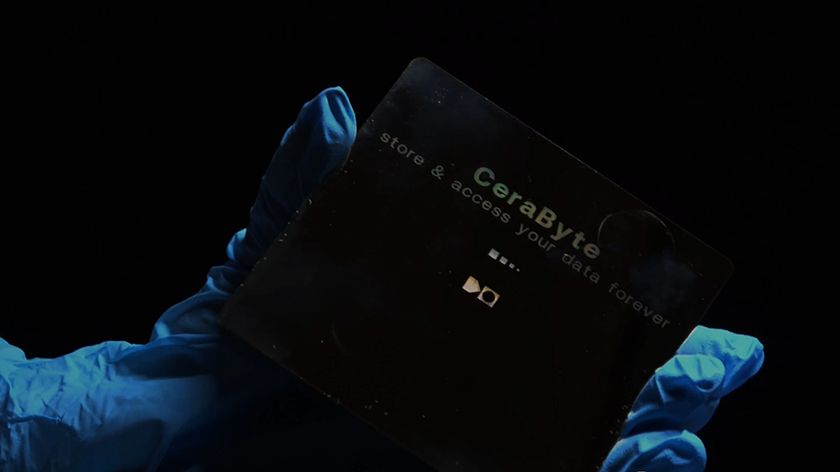For 3D to succeed, it will take much more than a token effort. According to Sky's Dollin, part of the reason previous generations of 3D have failed to capture the imagination of the gaming and film-going public is that 3D was treated as a "fairground ride" – a gimmick.
Unsuccessful efforts at 3D tried too hard, he says, exhausting audiences by providing a constant stream of 3D trickery designed to make as much of the technology as possible. Modern producers "are trying to be a lot more sympathetic to the medium, and trying to make it more real," he says.
Andrew Pulver, Film Editor at The Guardian, agrees. Past attempts to bring 3D into the mainstream resulted in "low-rent, exploitative [films]," he says. New films such as Avatar – which is reported to have cost as much as £300million – could prompt an explosion of 3D films. Pulver says the 3D "works really well" in Avatar and that, for the first time, a studio has financed a "serious, major [3D] blockbuster by the biggest director in town".

There's little arguing with the list of upcoming 3D releases, either: director Tim Burton features heavily, with releases such as Alice in Wonderland and The Nightmare Before Christmas due in the next 12 months.
Games are easier to convert. Depth information is already programmed in, so the only major added cost is the hardware needed to play the result. "In development time, the costs are minimal," says EA's Doug McConkey. Hopefully this should mean a proliferation of 3D games – and soon.
3D controllers
Even if the future of entertainment isn't 3D screens, the world of the controller is expanding in every direction. Nintendo's Wii Remote is the most famous example – a controller that knows where it is in relation to the screen. Richard Huddy describes the Wii Remote as "immensely attractive" to gamers. And the figures seem to prove him right: the Wii is by far the best selling console, leaving Microsoft and Sony playing catch-up.
Get daily insight, inspiration and deals in your inbox
Sign up for breaking news, reviews, opinion, top tech deals, and more.
Sony's forthcoming motion controller, the Move, works in a similar way to the Wii Remote. It features a coloured orb on the top which is tracked by a webcam on top of the display, while the controller itself also feeds back motion information. A spectacular demo at E3 last summer hinted at an incredibly powerful system, although recent reports about lag are a bit worrying.
Microsoft's Project Natal for the Xbox 360 is even more advanced, removing the controller altogether and tracking a user's movements in real-time via a display-mounted camera. To hit an opponent, simply throw a punch in mid-air.

Speaking at the technology's launch at CES in Las Vegas back in January 2009, Steven Spielberg described Project Natal's announcement as "a pivotal moment" that would "reach far beyond video games".
With Sky's 3D service set to launch this year, 3D gaming beginning to emerge and popular blockbusters such as Avatar making great use of 3D technology, you might think that the battle is won. But the experts PC Plus spoke to were cautious.
"The truth is, it's stumbled many times before," says ATI's Richard Huddy, describing the longevity of the latest 3D tech as "the toughest question".
Will 3D stick this time?
Back in September 2009, The Guardian ran a story saying that the BBC might show Olympic events in 3D in 2012. This raised the prospect of a BBC 3D channel arriving in less than two years.
However, Roger Mosey, the Director of the BBC's 2012 Olympics operation, has been quick to talk the BBC's plans back to reality. "There won't be a BBC 3D channel in 2012," he told PC Plus. But that's not to say that the BBC is shunning 3D altogether.
Instead, the corporation plans to capture certain Olympic events in 3D regardless of the public's ability to receive them at home. "It would be a shame for some of the big moments not to be captured in 3D," he says – but for now, the BBC's priorities lie with broadcasting the Olympics in HD rather than 3D.
The BBC aren't alone in holding off from investing in 3D technology, and The Guardian's Pulver seemed to share the corporation's misgivings. "I wouldn't be surprised if [3D] did peter out," he says, noting that Avatar is largely responsible for the medium's future. The film's results need to be "pretty spectacular" for studios to finance more 3D films.
Sky's John Dollin is optimistic, though. He says that Sky isn't releasing a 3D service "just for the sake of 3D". ATI's Richard Huddy sees hope for the future, too: "If the BBC, Sky, Virgin and so on roll [3D] out over the next couple of years, then it will work."
Sky's service is to launch this year, although the company refuses to be drawn on precisely when. "This is going to be bigger than I think people believe," says Dollin. We just hope he's right.












